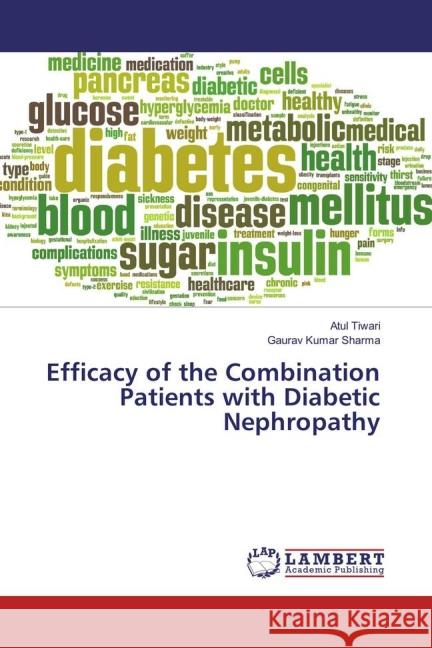Efficacy of the Combination Patients with Diabetic Nephropathy » książka
Efficacy of the Combination Patients with Diabetic Nephropathy
ISBN-13: 9783659831539 / Angielski / Miękka / 2016 / 92 str.
Critically important is attention to prevention as preferential to treatment of diabetic nephropathy. Once overt nephropathy is present, progression cannot be avoided, only delayed. The earliest clinical indicator of renal damage is microalbuminuria, which should be screened for at regular intervals with sensitive tests. Several studies demonstrate the preventive effect of lowered blood glucose on the microvascular complications of diabetes, including nephropathy, and serve as the rationale for the emphasis on tight rather than casual glycemic control. Before and especially after the onset of early nephropathy, blood pressure control is critical in preventing or slowing the progression of renal damage. First-choice agents for treating microalbuminuria are the ACE inhibitors. Enalapril has an antiproteinuric effect independent of the effect on systemic blood pressure. Treatment with enalapril can reduce the rate of decline in kidney function in patients with diabetic nephropathy more than equally effective antihypertensive treatment with metoprolol. This points to a specific renal protective effect of angiotensin converting enzyme inhibitors in diabetic nephropathy.











